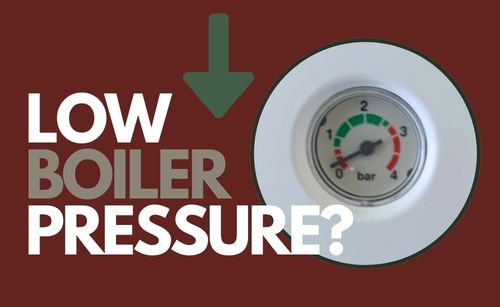“Why Does My Boiler Keep Losing Pressure?”
If you’ve noticed your boiler’s pressure dropping frequently, it can be a frustrating and concerning issue. Low boiler pressure not only affects its efficiency but also indicates underlying problems that require attention. In this article from Expert Heat, we’ll delve into the common reasons why your boiler keeps losing pressure and what you can do to rectify the situation.
Understanding Boiler Pressure:
Before we delve into the reasons behind dropping boiler pressure, let’s understand what boiler pressure is and why it’s crucial for your heating system.
Boiler pressure refers to the force exerted by the water within your boiler system. It’s typically measured in bars, with the ideal pressure range for most boilers falling between 1 and 1.5 bars when the system is cold.
Common Causes of Dropping Boiler Pressure:
Leak in the System:
-
- One of the most common reasons for a drop in boiler pressure is a leak within the heating system. Leaks can occur in various components, including pipes, valves, radiators, and the boiler itself. Even small leaks can lead to a gradual loss of pressure over time.
Bleeding Radiators:
-
- If you’ve recently bled your radiators to release trapped air, it can cause a drop in boiler pressure. While bleeding radiators is essential for optimal heating performance, it can introduce air into the system, leading to a temporary decrease in pressure.
Faulty Pressure Relief Valve:
-
- The pressure relief valve is designed to release excess pressure from the boiler to prevent over-pressurisation. If the valve is faulty or improperly set, it may release water excessively, causing a drop in pressure.
Corrosion or Blockages:
-
- Over time, corrosion and debris buildup can occur within the boiler and heating system, leading to blockages and restricted water flow. This can result in a drop in pressure as the water struggles to circulate effectively.
Expansion Vessel Issues:
-
- The expansion vessel is responsible for absorbing excess water pressure as the water in the system heats up. If the expansion vessel is faulty or has lost its charge, it may fail to maintain the correct pressure levels, causing fluctuations in boiler pressure.
What to do if your Boiler Keeps Losing Pressure?:
Check for Leaks:
-
- Inspect your boiler, pipes, radiators, and valves for any signs of leaks. Addressing leaks promptly can help prevent further pressure loss and damage to your heating system.
Repressurise the Boiler:
-
- Most modern boilers feature a built-in filling loop that allows you to repressurise the system easily. Refer to your boiler’s manual for instructions on how to use the filling loop to top up the pressure to the recommended levels. you do not normally need to call out an engineer for this process.
Inspect the Pressure Relief Valve:
-
- Ensure that the pressure relief valve is functioning correctly and not leaking excessively. To check this there should be a copper pipe outside usually behind the boiler, check no water is coming out the copper pipe, if there is then the PRV is passing.
Flush the System:
-
- Consider flushing your heating system to remove any corrosion or debris that may be causing blockages and hindering water circulation. A professional power flush can help restore optimal performance and pressure levels.
Check the Expansion Vessel:
-
- Have a qualified heating engineer inspect the expansion vessel and ensure it’s functioning correctly. If the vessel has lost its charge, it may need to be recharged or replaced to maintain proper pressure regulation. An easy way to see for yourself is to check the pressure gauge on your boiler, if it rises to 3 bar or above when the central heating is on then the expansion vessel has lost its charge, this will also operate the PRV as a safety feature.
Maintaining optimal boiler pressure is essential for efficient heating and preventing damage to your heating system. By understanding the common causes of dropping boiler pressure and taking proactive steps to address them, you can ensure that your boiler operates reliably and efficiently all year round. If you’re unsure how to resolve low boiler pressure or suspect underlying issues then you should get your boiler checked over by a gas safe registered company like Expert Heat.



